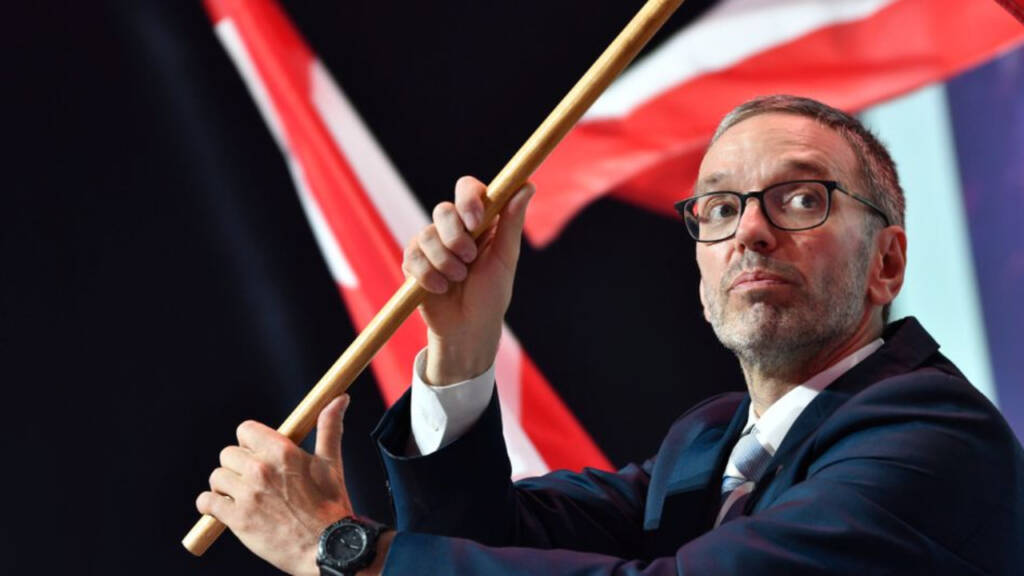In the grand opera of European politics, Austria is tuning up for a performance that threatens to hit a few discordant notes. Cue Herbert Kickl, a far-right conductor who’s composed a symphony of pro-Russian, anti-American ideologies. Part Orbán, part Meloni, he’s ready to take center stage as Austria’s next chancellor, leaving Europe bracing for an encore of populist disruption.
What’s Happening?
As Austria heads towards elections next year, Herbert Kickl, a far-right Austrian politician noted for his pro-Russian and anti-American views, is emerging as the odds-on favorite to become the country’s next leader. His ascendancy could signal a significant challenge for Europe. Kickl’s Freedom Party has been leading national polls by several points since November, fueled by rising inflation and a sharp increase in asylum applications which are driving discontent with the current government, a coalition of the Austrian People’s Party, and the Greens.
With the Social Democrats, the other main opposition party, beset by infighting, the Freedom Party stands its best chance in years to capture power.
Kickl’s potential ascension to power threatens to add to the European Union’s already existing woes. The EU is currently grappling with Hungary, where nationalist Prime Minister Viktor Orbán has systematically consolidated his grip on all major levers of power.
This has led critics to view Hungary as a semi-authoritarian state nestled within the EU. Kickl’s rule could potentially tip the scales further away from the EU’s principles of democratic governance.
Read More: Austria’s chancellor Karl Nehammer commits political suicide by poking Putin in the eye
The EU Dilemma
Alarm bells are ringing in Brussels. European officials warn that victories by pro-Russian forces in Slovakia and Austria would equip Russian President Vladimir Putin with a potent instrument against Ukraine, facilitating his efforts to weaken sanctions and EU attempts to support Ukraine. “It would be a disaster,” stated a senior Commission official from the region.
The echoes of Kickl’s politics resonate far beyond Austria, and he also shares many ideological similarities with Italy’s first woman prime minister, Giorgia Meloni. Italians have handed her right-wing group a clear mandate to govern, and she has pledged to lead a government for all Italians. This development, too, poses a dilemma for the EU, underscoring the rise of far-right politics within its member states.
Read More: EU invites Italy’s wrath as Ursula goes bonkers at Meloni
The rise of conservatism
The wave of conservatism is not confined to the EU’s borders but is sweeping through various other major countries. This changing political landscape signals a worrisome trend for the European Union, as it tries to balance the principles upon which it was founded with the realities of the contemporary political climate.
In many ways, Kickl seems to embody a blend of Orbán’s tenacity and Meloni’s populist appeal, a combination that could shake the very foundations of the EU. As a staunch nationalist with a knack for exploiting popular discontent, Kickl represents the very antithesis of the inclusive, democratic values that the EU purports to uphold.
Austria’s political fate, and potentially that of the broader European continent, hangs in the balance as it heads toward elections. Whether Kickl’s Freedom Party will take the reins of power remains uncertain. However, his popularity, mirroring the growing acceptance of conservative ideologies across Europe, could signal a new, and potentially fraught, chapter for the EU.
Watch More:
